Books
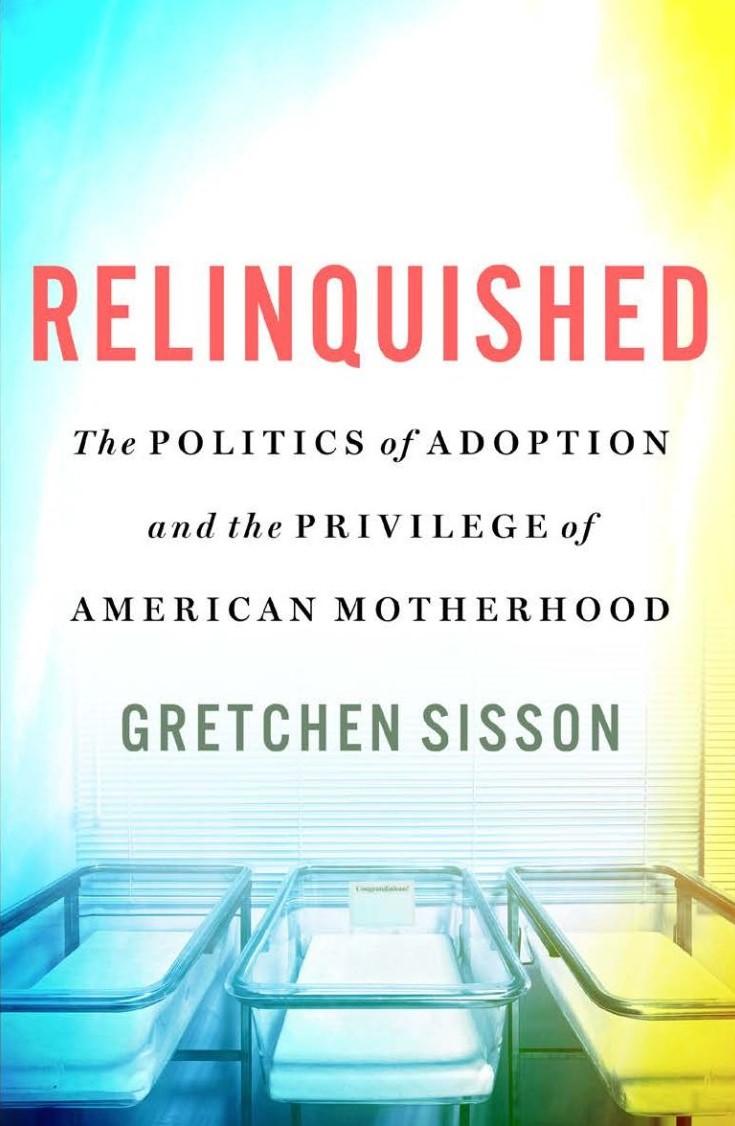
Relinquished: The Politics of Adoption and the Privilege of American Motherhood
Copyright: 2024, St. Martin's Press
Relinquished offers a close examination of motherhood in the United States. Sociologist Gretchen Sisson's studies on adoption includes hundreds of in-depth interviews with women who have relinquished infants for domestic adoption over the past 60 years, with a particular focus on women who have relinquished since Roe v. Wade.
Purchase here.
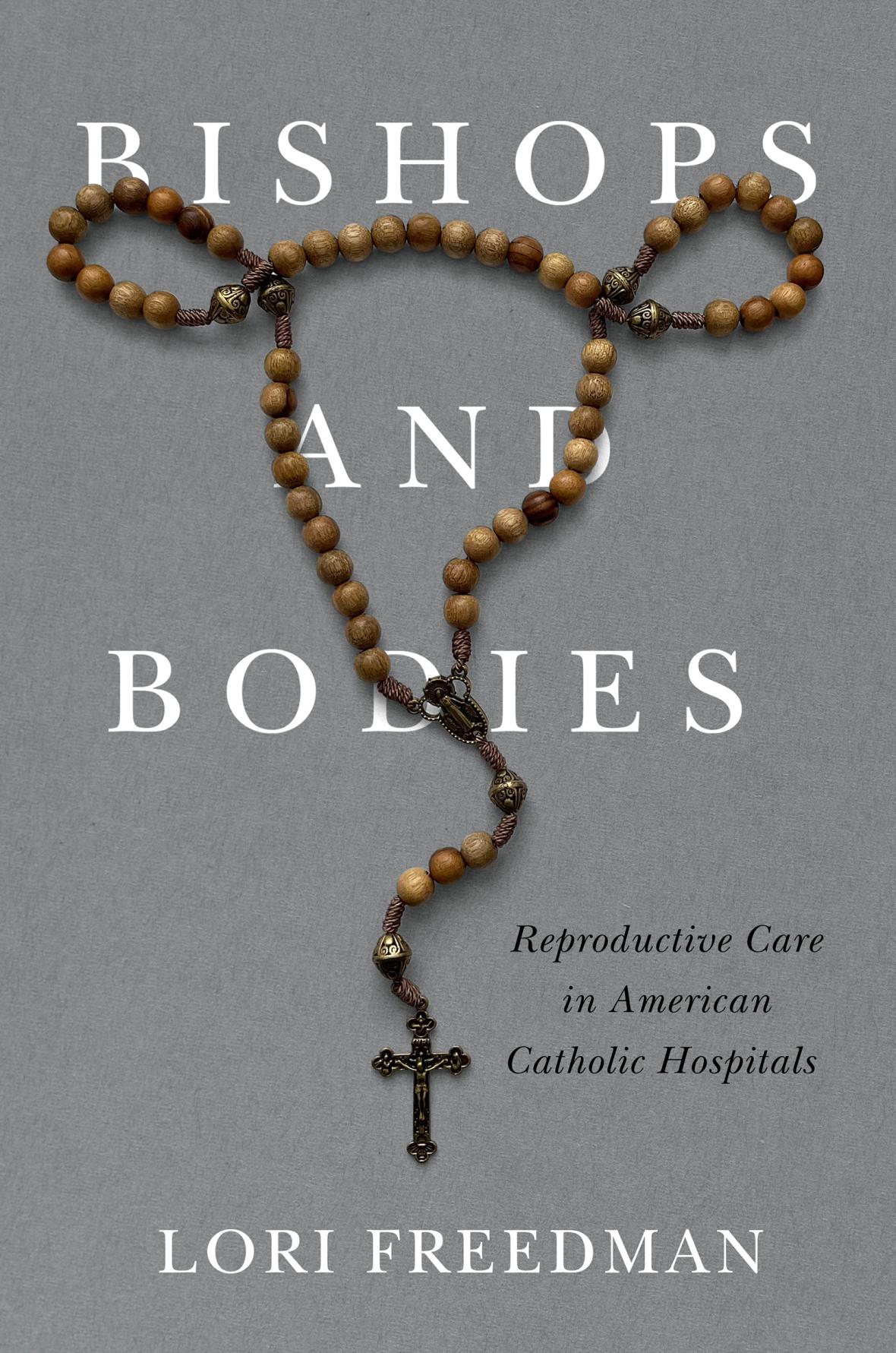
Bishops and Bodies: Reproductive Care in American Catholic Hospitals
Copyright: 2023, Rutgers University Press
One out of every six patients in the United States is treated in a Catholic hospital that follows the policies of the U.S. Conference of Catholic Bishops. These policies prohibit abortion, sterilization, contraception, some treatments for miscarriage and gender confirmation, and other reproductive care, undermining hard-won patients’ rights to bodily autonomy and informed decision-making. Drawing on rich interviews with patients and providers, this book reveals both how the bishops’ directives operate and how people inside Catholic hospitals navigate the resulting restrictions on medical practice. In doing so, Bishops and Bodies fleshes out a vivid picture of how The Church’s stance on sex, reproduction, and “life” itself manifests in institutions that affect us all.
Purchase here.
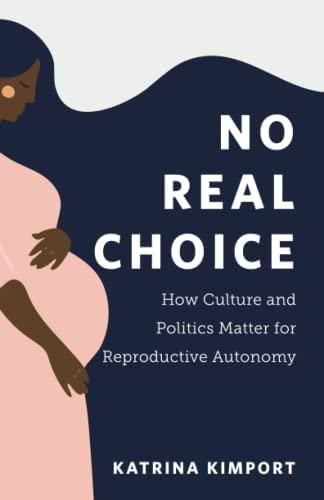
No Real Choice: How Culture and Politics Matter for Reproductive Autonomy
Copyright: 2022, Rutgers University Press
Based on candid, in-depth interviews with women who considered but did not obtain an abortion, No Real Choice punctures the myth that American women have full autonomy over their reproductive choices. Focusing on the experiences of a predominantly Black and low-income group of women, sociologist Katrina Kimport finds that structural, cultural, and experiential factors can make choosing abortion impossible–especially for those who experience racism and class discrimination. Told with care and sensitivity, No Real Choice gives voice to women whose experiences are often overlooked in debates on abortion, illustrating how real reproductive choice is denied, for whom, and at what cost.
Purchase here.
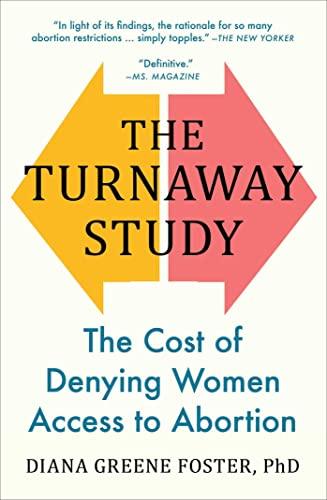
The Turnaway Study: Ten Years, a Thousand Women, and the Consequences of Having—or Being Denied—an Abortion
Copyright: 2020, Scribner
What happens when a woman seeking an abortion is turned away? To answer this question, Diana Greene Foster assembled a team of scientists—psychologists, epidemiologists, demographers, nurses, physicians, economists, sociologists, and public health researchers—to conduct a ten-year study. They followed a thousand women from across America, some of whom received abortions, some of whom were turned away. Now, for the first time, Dr. Foster presents the results of this landmark study in one extraordinary, groundbreaking book.
Purchase here.
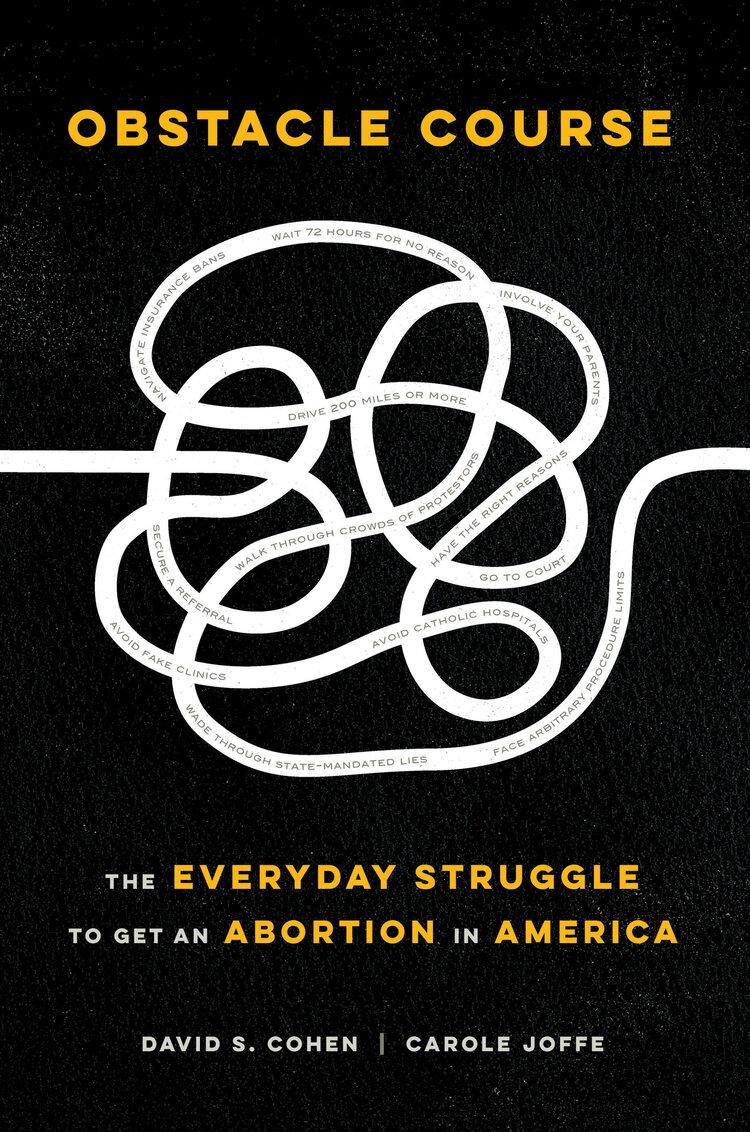
Obstacle Course: The Everyday Struggle to Get an Abortion in America
by David S. Cohen and Carole Joffe, PhD
Copyright: 2020, University of California Press
Obstacle Course tells the story of abortion in America, capturing a disturbing reality of insurmountable barriers people face when trying to exercise their legal rights to medical services. Authors David S. Cohen and Carole Joffe lay bare the often arduous and unnecessarily burdensome process of terminating a pregnancy: the sabotaged decision-making, clinics in remote locations, insurance bans, harassing protesters, forced ultrasounds and dishonest medical information, arbitrary waiting periods, and unjustified procedure limitations. Based on patients’ stories as well as interviews with abortion providers and allies from every state in the country, Obstacle Course reveals the unstoppable determination required of women in the pursuit of reproductive autonomy as well as the incredible commitment of abortion providers.
Purchase here.
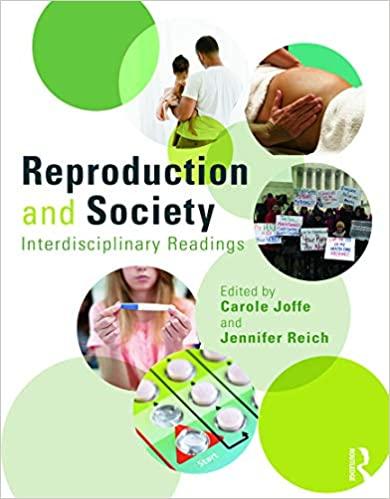
Reproduction and Society: Interdisciplinary Readings
by Carole Joffe, PhD, and Jennifer Reich
Copyright: 2015, Routledge
A collection of essays, framed with original introductions, Reproduction and Society: Interdisciplinary Readings helps students to think critically about reproduction as a social phenomenon. Divided into six rich and varied sections, this book offers students and instructors a broad overview of the social meanings of reproduction and offers opportunities to explore significant questions of how resources are allocated, individuals are regulated, and how very much is at stake as people and communities aim to determine their own family size and reproductive experiences. This is an ideal core text for courses on reproduction, sexuality, gender, the family, and public health.
Purchase here.
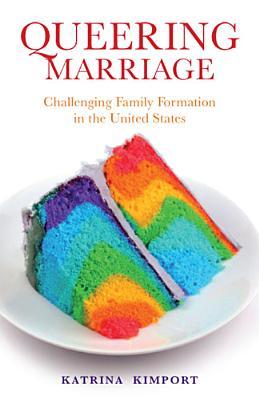
Queering Marriage: Challenging Family Formation in the United States
Copyright: 2014, Rutgers University Press
Over four thousand gay and lesbian couples married in the city of San Francisco in 2004. The first large-scale occurrence of legal same-sex marriage, these unions galvanized a movement and reignited the debate about whether same-sex marriage, as some hope, challenges heterosexual privilege or, as others fear, preserves that privilege by assimilating queer couples. In Queering Marriage, Katrina Kimport uses in-depth interviews with participants in the San Francisco weddings to argue that same-sex marriage cannot be understood as simply entrenching or contesting heterosexual privilege. Instead, she contends, these new legally sanctioned relationships can both reinforce as well as disrupt the association of marriage and heterosexuality.
Purchase here.
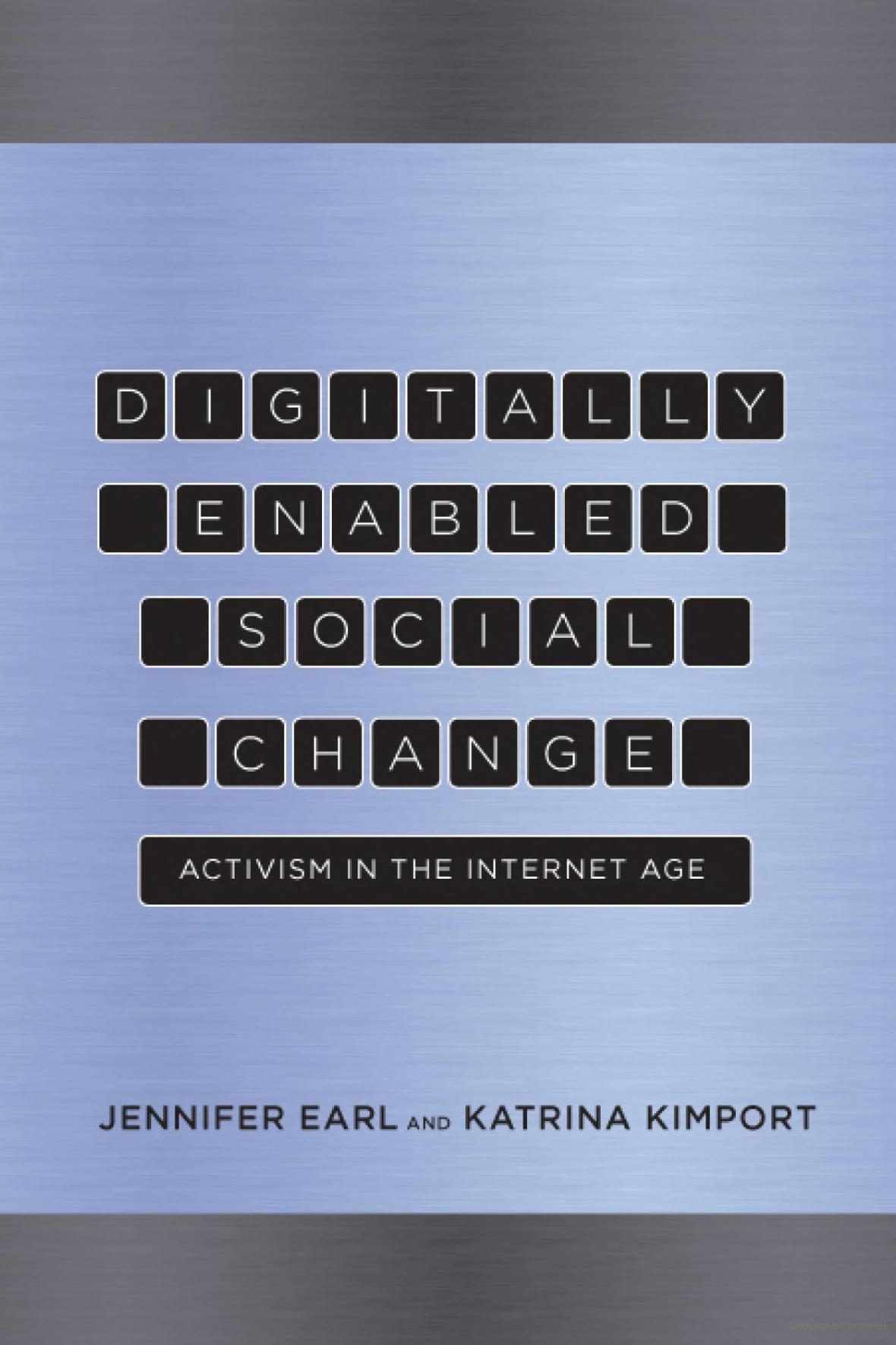
Digitally Enabled Social Change: Activism in the Internet Age
by Jennifer Earl and Katrina Kimport, PhD
Copyright: 2011, MIT Press
Much attention has been paid in recent years to the emergence of “Internet activism,” but scholars and pundits disagree about whether online political activity is different in kind from more traditional forms of activism. Does the global reach and blazing speed of the Internet affect the essential character or dynamics of online political protest? In Digitally Enabled Social Change, Jennifer Earl and Katrina Kimport examine key characteristics of web activism and investigate their impacts on organizing and participation.
Purchase here.
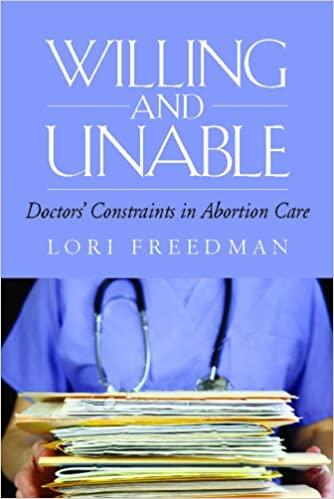
Willing and Unable: Doctors' Constraints in Abortion Care
Copyright: 2010, Vanderbilt University Press
Willing and Unable explores the social world where abortion politics and mainstream medicine collide. Dr. Lori Freedman interviewed physicians of obstetrics and gynecology around the United States to find out why physicians rarely integrate abortion into their medical practice. While abortion stigma, violence, and political contention provide some explanation, her findings demonstrate that willing physicians are further encumbered by a variety of barriers within their practice environments.
Purchase here.
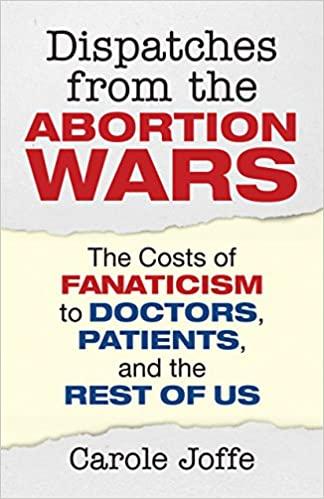
Dispatches from the Abortion Wars: The Costs of Fanaticism to Doctors, Patients, and the Rest of Us
Copyright: 2009, Beacon Press
More than thirty-five years after women won the right to legal abortion, most people do not realize how inaccessible it has become. In these pages, reproductive-health researcher Carole Joffe shows how a pervasive stigma—cultivated by the religious right—operates to maintain barriers to access by shaming women and marginalizing abortion providers. Through compelling testimony from doctors, health-care workers, and patients, Joffe reports the lived experiences behind the polemics, while also offering hope for a more compassionate standard of women’s health care.
Purchase here.
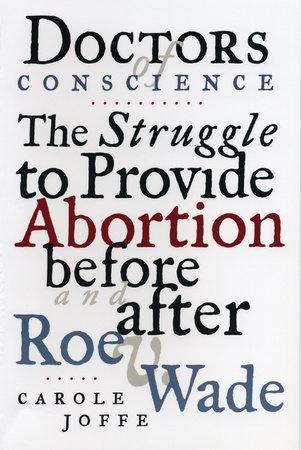
Doctors of Conscience: The Struggle to Provide Abortion Before and After Roe V. Wade
Copyright: 1995, Beacon Press
Both sides of the debate over legal abortions have invoked the images of the "back-alley butcher" and the coat hanger as a portrayal of abortionists in the years before the Roe v. Wade decision. Anti-abortionists use these symbols to portray abortionists as greedy, exploitative, and less than professional, while supporters of choice invoke them to warn of the jeopardy in which women's lives would be placed if abortion were recriminalized. But the truth about pre-Roe abortion is often quite different. Carole Joffe interviews 45 health-care professionals who either provided safe abortions or access to them in those years, focusing on, as she puts it, "the mounting frustrations with anti-abortion legislation that led otherwise highly conventional physicians to various degrees of law breaking and law bending" and the impact that decision had on their personal and professional lives.
Purchase here.
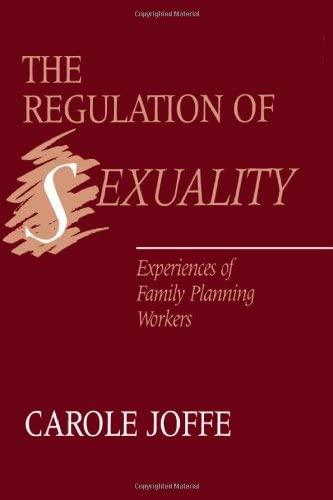
The Regulation of Sexuality: Experiences of Family Planning Workers
Copyright: 1986, Temple University Press
Author Carole Joffe takes readers from the most private aspects of sexuality into the arena of public policy and state regulation. In this book, Joffe argues that the federal government, the feminist movement and the New Right fail to adequately address the often wrenching conflicts faced daily by birth control and abortion workers. Called "a wonderfully alive and readable ethnographic study" by The Women's Review of Books when first published, the book probes and illuminates the workers' whole environment.
Available on JSTOR.
